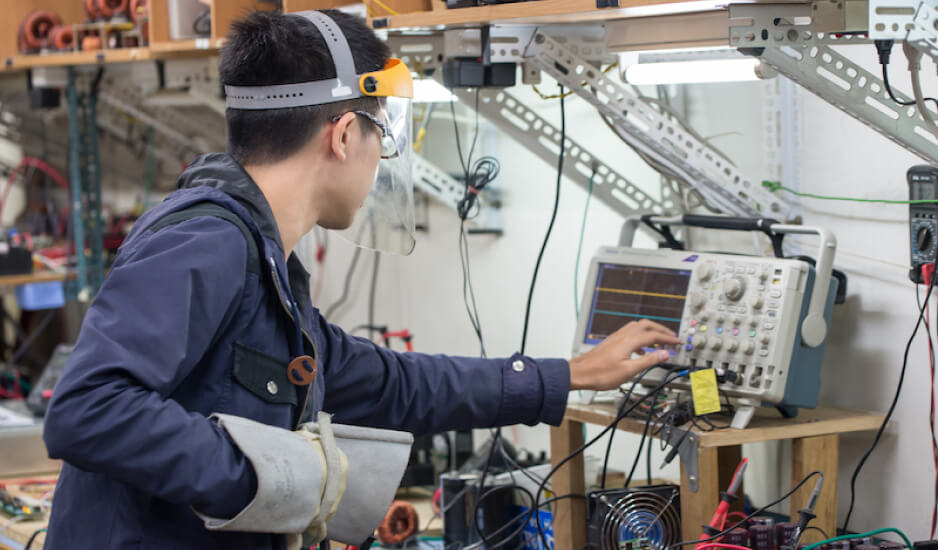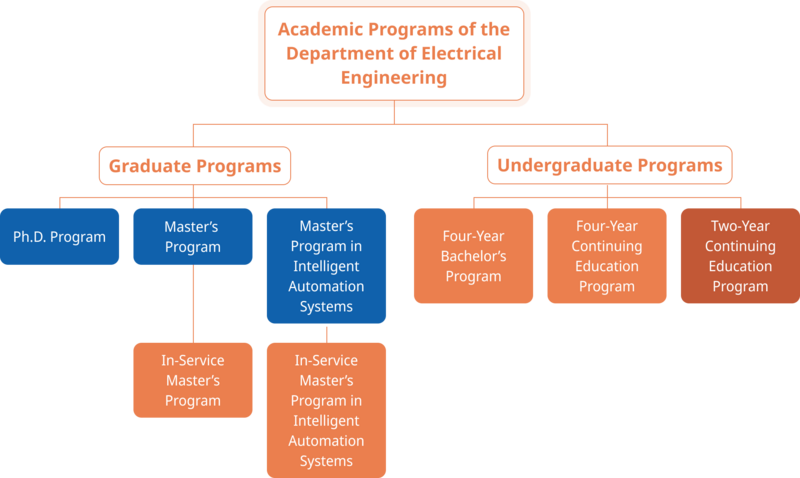
-
About
-
Faculty
-
Student Information
-
Teaching & Research
-
Admissions
-
Downloads
- News
- Internship
- Industry-Academia
The curriculum for the two-year and four-year programs in our department is designed not only to build upon the foundational courses from (vocational) senior high schools but also to enhance professional skills in eight fields, and the integration of these fields is also emphasized. The eight fields include "Computer Software and Hardware," "Network Communications," "Artificial Intelligence," "Optoelectronics Engineering," "Power Engineering," "Energy Engineering," "Control Engineering," and "Power Electronics."
Our teaching content is social-need oriented. Theory and practice are equally highlighted. We also broadly seek information from the industry and execute cooperative education programs with major companies such as Taipower, China Steel Co., CPC Co., and high-tech firms in the Tainan Science Park, Kaohsiung Science Park, and the Kaohsiung Export Processing Zone. This ensures that our graduates can meet the demands of the job market.
Moreover, our curriculum provides courses suitable for those who would like to take national examinations and apply to domestic and international graduate schools. We actively encourage students to continue their study. The number of our students admitted to graduate programs is ranked at the top nationwide.
Our graduate programs offer specialized courses designed to meet the needs of students. Based on our faculty’s expertise, these courses cover areas such as Power and Energy, Power Electronics, Control Theory and Applications, and Information Science and Communication, allowing students to choose to meet their interests. Our faculty, with extensive teaching experience in both industrial practice and applied research, maintains strict standards of learning quality. As a result, our graduates are highly welcomed and recognized by scholars and employers in academia and industry.

The curriculum in our department is designed to build on the knowledge gained in (vocational) senior high school and further sharpen expertise in eight key areas, including “Computer Software and Hardware,” “Network Communications,” “Machine Learning,” “Optoelectronics Engineering,” “Power Engineering,” “Energy Engineering,” “Control Engineering,” and “Power Electronics.” The integration of these areas is a significant focus of our curriculum.
Our course design is not only driven by social needs, but also balances theory and practice. With the aim of meeting the demands of emerging technologies and the skills required in the job market, the curriculum is categorized into three main areas.
We advocate for a heuristic teaching approach. In addition to regular coursework, we invite external experts and scholars from academia and industry to deliver keynote speeches every semester. These are complemented by off-campus visits and internships to enhance students' professional knowledge and broaden their learning perspectives and networks. By doing so, students can foster the ability to view problems from a macro perspective and solve them effectively, thus enhancing their competitiveness in the job market.
